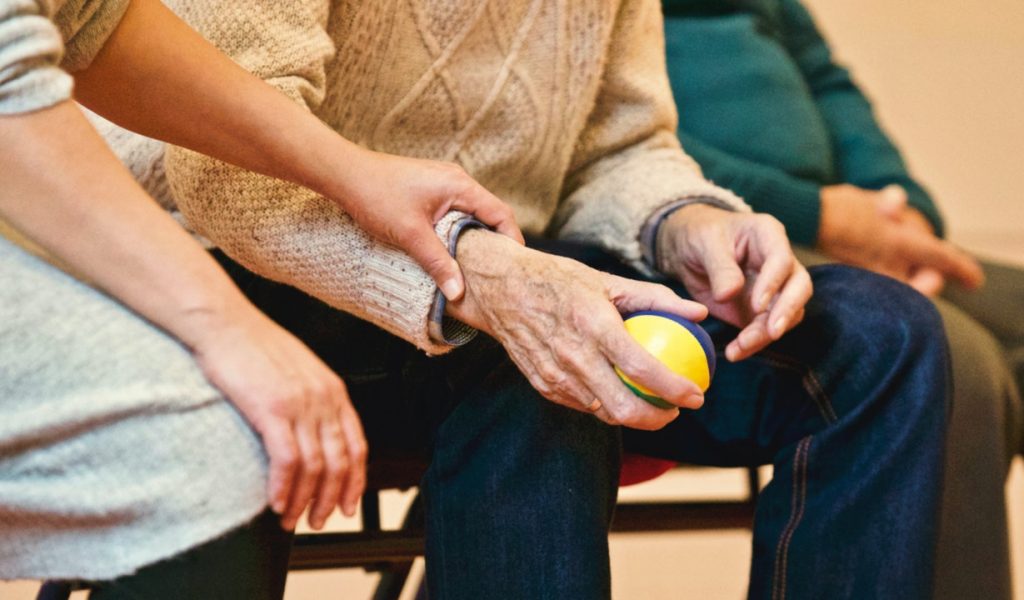Overview
Hey everyone!
Welcome to this week’s article where we will be busting some common myths about General Practice.
In this article, we will cover the following topics:
Introduction
Myth 1: General Practice isn’t a specialty
Myth 2: You’re just doing GP for the ‘lifestyle’
Myth 3: General practice is easy!
Myth 4: General practice is just coughs, colds and referrals
Myth 5: GP’s don’t earn much money
Myth 6: General practice is all touchy-feely
Myth 7: GP’s don’t do any procedures
Myth 8: General practice is dominated by old, male GP’s
Myth 9: GP’s sit in a boring clinic all day and don’t practice exciting medicine
Myth 10: GPs only picked general practice because they didn’t get into any other medical specialty
Final Thoughts
Introduction
Have you ever wondered what life is really like as a GP or GP Registrar?
Did you think it was all about having fat-chats with your patients while sipping on a warm drink pondering the amazing lifestyle you have?
This may be true (on an exceptionally good day). But, for most GP’s and GP Registrar’s, life can actually look a lot different to this.
I’ve been a GP Registrar for about 6 months now, so I thought I’d bust some myths and uncover the real truth behind General Practice.
Let’s go!
Myth #1: General Practice isn’t a specialty. In order to be a GP, you just have to finish medical school.
The Reality…
If I had a dollar for every time I’ve heard this, I would be able to quit my day job.
General Practice is a specialist qualification. It was first recognised by the Australian Medical Council (AMC) as one of 17 specialties in Australian in 1999.
In order to become a GP, you have to finish medical school (5-6 years), work as a junior doctor in a hospital (2-3 years) then complete another 2-3 years of specialist GP training. That’s 9 years of studying and working in the most expedient scenario.
In Australia, there are two training organisations that offer the fellowship – the RACGP (Royal Australian College of General Practitioners) and ACRRM (Australian College of Rural and Remote Medicine).

Myth #2: You’re just doing GP for the ‘lifestyle’.
The Reality…
I’ve heard this many times, mostly from my hospital colleagues. Whilst life as a GP can be more flexible (you mainly work Monday to Friday, during daylight hours with the occasional weekend or after hours shift), it is not stress free.
There is nothing lifestyle about seeing 20 – 40 patients per day, in 10 – 15 minute time slots where each patient expects you to solve all of their multi-morbidities in the time it takes to order a coffee. There’s nothing lifestyle about the fact that a GP’s take home pay is directly dependent on a Medicare Rebate which has remained ‘frozen’ for the better part of 8 years. There is nothing lifestyle about a job where you do not get paid sick leave or maternity leave as a fully qualified specialist.
So yes, whilst I do feel privileged to be home before the sun sets, there is nothing #lifestyle about my work day. To be quite honest, if I wanted the ‘lifestyle’, I’d be better off travelling around the world making YouTube videos whilst spruiking the latest green juice on the market.
Myth #3: General Practice is easy!
The Reality…
Nope. No. Nada. Negatory. Not possible. I would argue that general practice is one of the toughest specialties, especially as a registrar. Hear me out:
As a GP or GP Registrar you must have a sufficient amount of knowledge to diagnose and manage a huge range of medical presentations within a short time period whilst also practicing preventative care and identifying any social issues or barriers that exist on a case by case basis.
To top it off, you do this whilst sitting in a room by yourself with no direct supervision. The closest thing you have to help is to pick the brain of another busy GP in the practice or make a phone call to a specialist or referral hospital.
This year I have literally gone from being a glorified secretary who would take coffee orders for the ‘real’ doctors, to managing chronic disease, mental health and women’s health (sometimes in the same consult!). Please don’t tell me my job is easy.

Myth #4: General Practice is just coughs, colds and referrals
The Reality…
It’s medical certificates too! JOKES!
General practice is bloody hard work. I actually relish the consults where all I am asked to do is write a referral or assess upper respiratory tract symptoms. Imagine sitting in an office and having to deal with ANY presentation that walks in the door in 10 or 15 minutes.
You could see anything from a non-specific paediatric rash to a pregnant woman with shingles ophthalmicus to an elderly patient with an exacerbation of heart failure (yes these are real examples, in a real day of general practice). You’ve got to choose the right treatment (at the right dose) and also provide advice on how to manage the condition and advise appropriate follow up and counsel on red flags.
General practice is medicine in it’s broadest, widest, most undifferentiated glory (and then some).
Myth #5: GP’s don’t earn much money.
The Reality…
This is an age old question that has been bandied about in medicine for decades. Firstly, you have to quantify ‘how much’ money you actually need and want.
After some introspection, you’ll most likely find that no amount of money can buy things like time spent with your loved ones, embarking on travel (pre-covid) or pursuing your interests outside of medicine. Most people just want enough to be comfortable, and that is definitely possible with a career in general practice.
Also, I can guarantee you that if you choose your specialty based on financial remuneration alone (and not because you actually enjoy said specialty), this will not bode well in the long run.
If you’re after some figures, an average fully-qualified GP, working in an average clinic earns around $200,000 per year. his is a ballpark figure but the point is, you are comfortable. There are many ways you can add to this income by choosing your location and practice carefully.
If you still consider this to be a pittance, then you should definitely pursue a more lucrative medical specialty or just leave medicine altogether and start a business.
Myth #6: General Practice is all touchy-feely
The Reality…
I’ve heard this criticism a lot during my hospital years as a junior doctor. By touchy-feely, I think what most people mean is that GP’s actually sit down and talk to their patients. This often doesn’t happen in hospital where doctors are too overwhelmed with large patient loads and clumsy electronic systems to actual talk to a patient about their disease and its impact on their life.
If the implication of touchy-feely is patient centred care, then yes, general practice is touchy-feely.

Myth #7: GP’s don’t do any procedures
The Reality…
Whilst I do not miss the days (and nights) of endless cannulation and venepuncture as a junior doctor, I can safely say that my procedural skills have not gone to waste in GP land.
Best of all, you can choose which skills you would like to develop further. As a GP, you could choose to pursue advanced training in skin medicine which would allow you to perform skin excisions or skin flaps.
Even as a ‘regular’ GP, you are still expected to have procedural skills such as being able to suture lacerations, insert an Implanon contraceptive device, incise and drain abscesses, remove cysts, syringe ears and perform basic orthopaedic casts just to name a few.
You can learn new skills, such as Mirena insertion or wedge resections or intra-articular steroid injections. If you work rurally, your procedural skill set would be triple this list!
Myth #8: General Practice is dominated by old, male GP’s
The Reality…
Not any more! As of 2017, female GP’s outnumber their male counterparts. Moreover, this majority continues in the next generation of GP’s with females comprising 64% of the GP registrar population.
Unfortunately, female GP’s still earn less than their male counterparts and this is an area that deserves ongoing attention and focus.

Myth #9: GP’s sit in a boring clinic all day and don’t practice “exciting” medicine
The Reality…
In a lifetime, not everyone will visit a dermatologist, cardiologist or respiratory physician. But almost everyone will visit their local GP.
As the old adage goes, no two days are the same in general practice. GP’s practice medicine at the coalface of reality. We run clinics in shopping centres, next to commercial offices, in the outback, on a remote island or through the internet. We are everywhere.
Myth #10: GPs only picked General Practice because they didn’t get into any other specialty
The Reality…
Whilst many GP’s do enter the specialty after spending time training in other specialties, this is not one of the top 5 reasons they chose General Practice.
Junior doctors often choose general practice because it involves one-on-one contact with patients, building long-lasting relationships and practicing a diverse range of medicine.
There are some incredibly smart and talented doctors who willfully chose general practice because they wanted to do it. They would have probably made equally good cardiologists or general surgeons if that’s what they wanted to do. The important message here is to choose a specialty you enjoy and can see yourself working in for the next 30 years. Everything else is secondary.
Final Thoughts
I hope I’ve been able to bust some common myths about General Practice. I’d encourage all of you to spend some time in General Practice (as a medical student or junior doctor) to understand what life is really like. Even if it is not for you.
At the end of the day, general practice is a challenging yet extremely rewarding career.
I’d recommend it.
Share this post!









